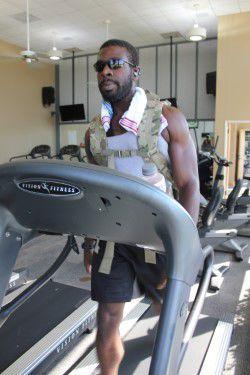Pennington Biomedical Wellness Center recently received $16.4 million from the military for nutritional research involving servicemen.
Pennington will conduct two studies over the next few years studying the effects of testosterone on muscle retention and development, and examining metabolic and gastrointestinal biomarkers.
The first study, spanning about two years, will enlist 32 physically active volunteers, ages 18-35. In exchange for up to $7,500 in stipends, the volunteers will receive supplemental testosterone to determine if the treatment can combat weight loss and muscle reduction, a persistent problem for servicemen stationed in austere combat zones that are both physically and mentally taxing.
Associate Executive Director of Cores and Resources Jennifer Rood clarified the conditions causing this issue.
“When our soldiers are out in the field, they are in what is called a multi-stressor situation,” Rood said. “They are expending a lot of calories, they are active for many hours a day, and they do not consume enough food.”
Consequently, these servicemen often burn calories more than 50% above the civilian average, rendering their rations less than adequate for maintaining their normal weights. This weight loss is accompanied by reduced testosterone levels, a fact which inspired the study’s focus.
This is not the first time Pennington has conducted a study of this nature. In 2016 they were awarded funds for similar research known as OPS 1 (Optimizing Performance for Soldiers). They concluded regular testosterone treatment did contribute significantly to muscle mass retention and even growth, but they did not find evidence of improved physical performance.
The new study, OPS 2, seeks to build upon these findings while more accurately simulating the realities of military service.
Participants will receive a different form of testosterone in OPS 2 that’s designed for gradual release. The testosterone will only be administered once instead of participants receiving weekly injections as in the previous study. Their meals will be prepared by Pennington’s metabolic kitchen and will closely resemble the rations soldiers actually eat. Sleep will be limited to mimic the sleep deprivation soldiers routinely endure in war zones.
Finally, this study will employ more comprehensive tests of physicality that reflect more accurately on military exercise; instead of focusing on just leg strength, OPS 2 will evaluate participants’ proficiency in deadlifts, vertical jumps, high-speed resistance-biking and weighted (60 lbs) 4km marches. Researchers hope to observe that with supplemental testosterone, participants can not only maintain their body weights but also improve physical performance.
The second study will take place over the next five years at research stations that span the globe. Researchers will examine biomarker data from military records of thousands of soldiers. Pennington will focus on metabolic and gastrointestinal biomarkers. These biomarkers are numerous and varied, ranging from endocrine (blood-based) stress hormones like cortisol and epinephrine, to various immune system markers.
They will also be measuring gut-transit time to determine the time taken for food to move through the GI tract. All of this data will be used to aid in optimizing diets for soldiers. In doing so it would help elucidate the key nutrients necessary for physical and mental well-being in American servicemen.
Pennington has a consistent and lengthy history of receiving award funds and contracts with the US Army. In the last 30 years they’ve been awarded nearly $100 million for servicemen nutrition research.
Dr. Rood attributes Pennington’s reputation in nutritional research to their dedication to aiding the US Department of Defense and to their unique infrastructure. Pennington boasts a metabolic kitchen that prepares all of the food, an intervention team for all the exercise protocol and a 20-bed inpatient facility capable of doing very controlled metabolic trials.
“We’re really one of the only facilities in the country which has all the different capabilities in one place,” Rood said.





